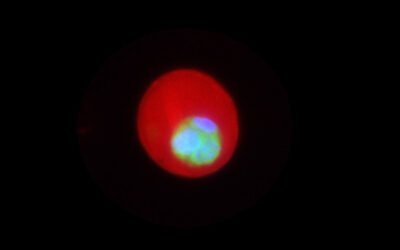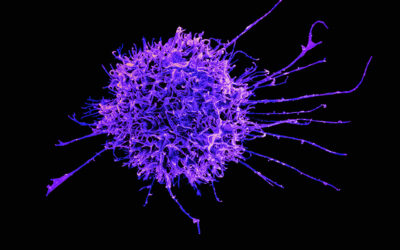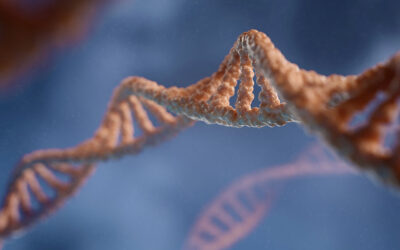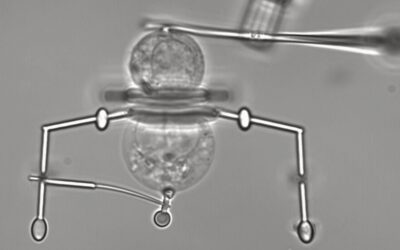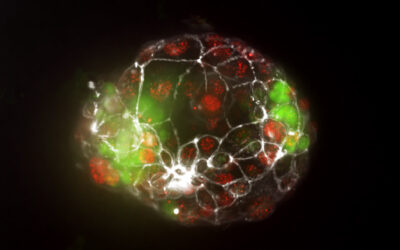Hormonal regulation of energy homeostasis is evolutionary conserved between flies and mammals. In humans, the homeostasis of energy reserves is dependent on insulin and glucagon signaling; flies and other insects do not have glucagon and the job is done by the AKH instead.
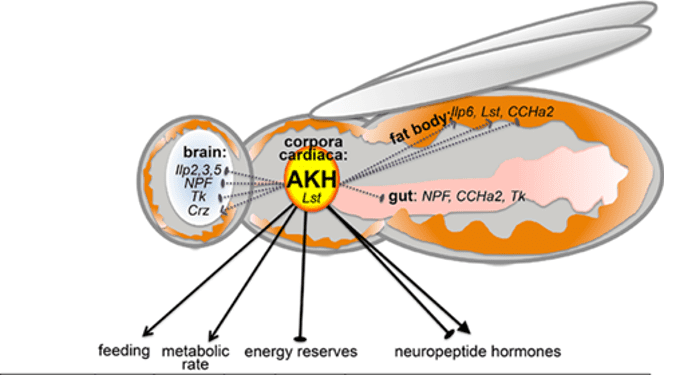
Mutant flies lacking a functional AKH become obese. Galikova, Kühnlein and colleagues used genetic, molecular biology and biochemical approaches in Drosophila to show that AKH controls body fat but not glycogen reserves, and that despite its anti-obesity effects, it works as an appetite stimulant and the obesity in AKH-deficient flies is not a result of excessive eating. The researchers further show that AKH regulates the expression of several other endocrine regulators and neuropeptides including the fly homologs of insulin.
Because of the evolutionary conservation of AKH and glucagon functions, this research can be potentially translated into human medicine. Further, because insect neuropeptides are emerging as important targets for parasite and pest control, the results can also be applied in the development of insecticides.













